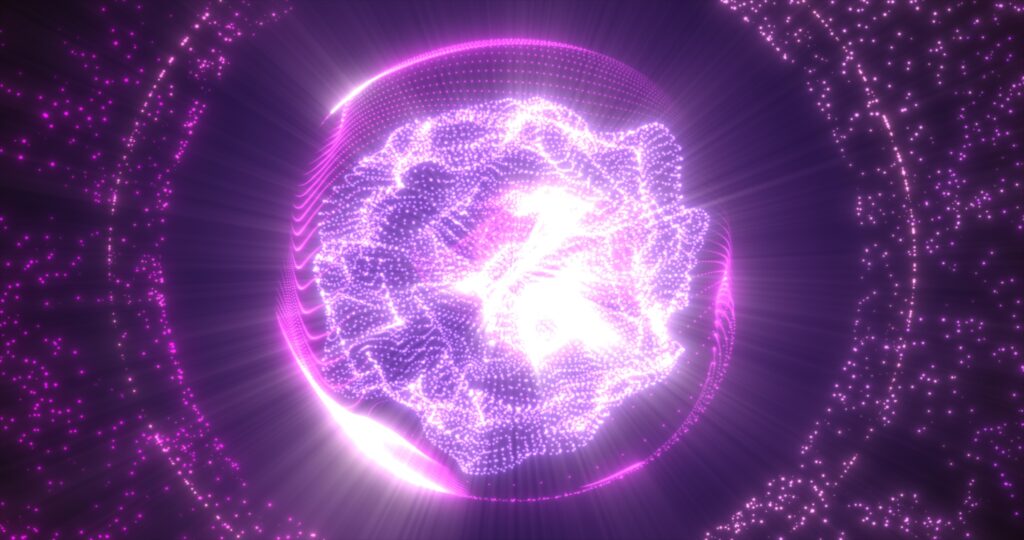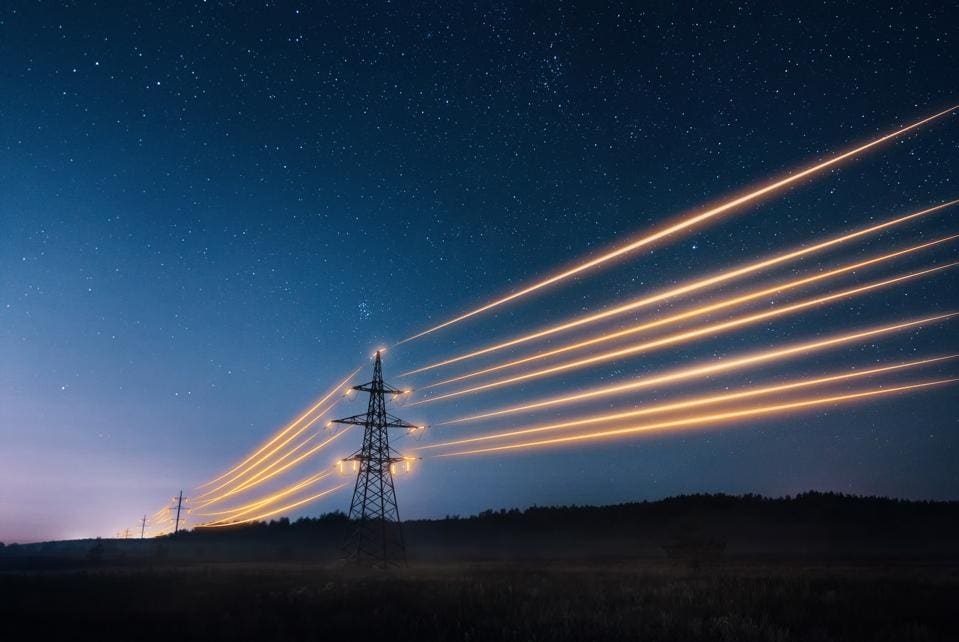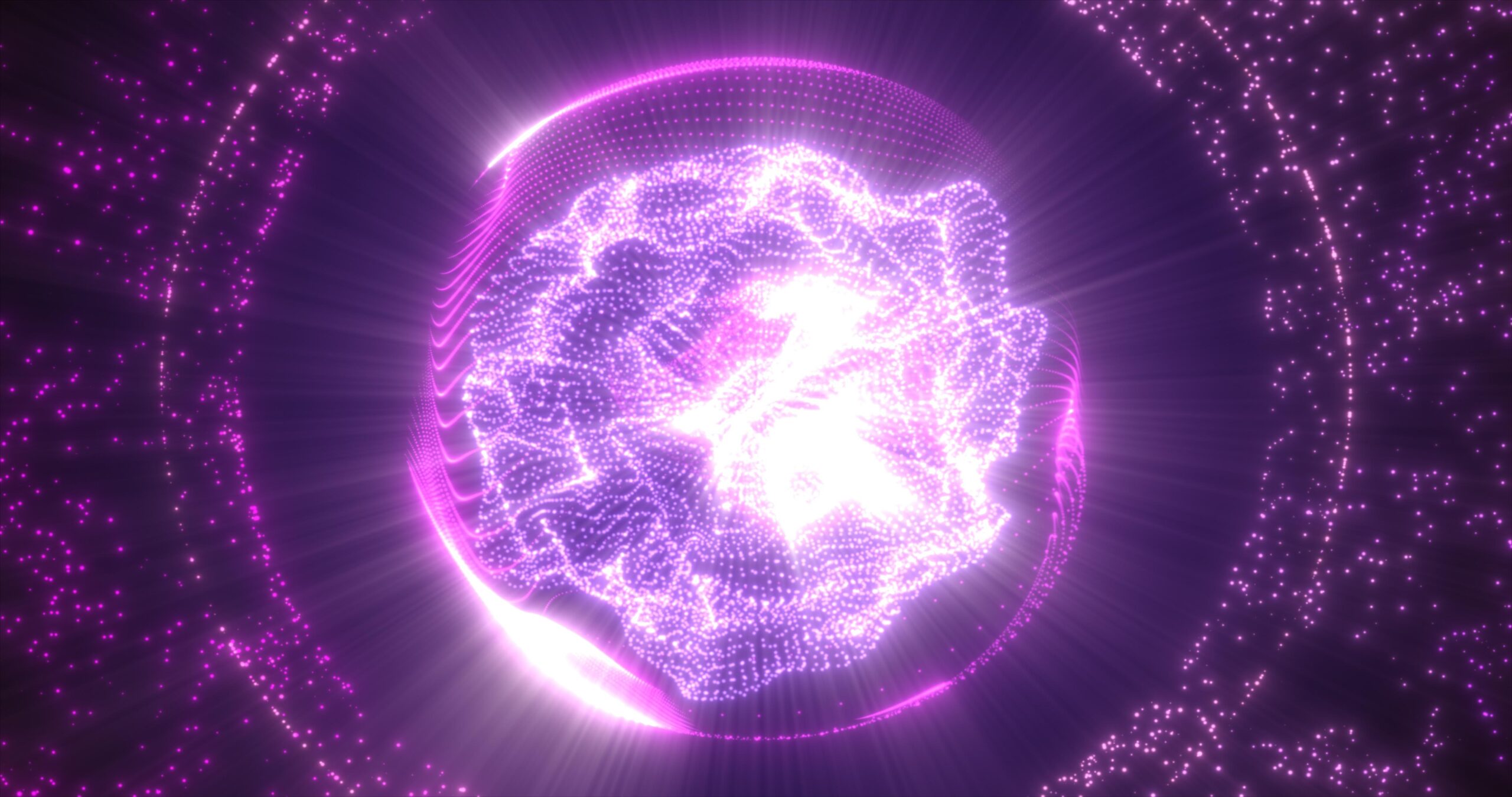This Spring I attended a private conference on the energy transition that was hosted by a major bank. There I learned more about small modular reactors (SMRs). This is a promising new nuclear technology for delivering carbon-free, baseload power to meet the world’s increasing energy needs.

Abstract purple energy sphere from particles and waves of magical glowing on a dark background. | Getty
SMRs are proving to be of crucial interest to the tech community which is focused on developing AI capabilities. AI is an insatiable energy beast. According to a Goldman Sachs report, a ChatGPT query takes about 10 times as much electricity to process as a Google search. Today data centers account for 1-2% of the world’s energy needs, a figure expected to grow to 3-4% over the next decade. The major players here are Alphabet, Amazon, Apple, Meta, Microsoft, and NVIDIA. All of them, with the exception of NVIDIA, have a commitment to be net zero on Scope 1, 2, and 3 emissions by 2030, or 2040 in the case of Amazon.
- Alphabet (Google): “At Google, our goal is to achieve net-zero emissions across all of our operations and value chain by 2030.”
- Amazon: ”Amazon has an incredibly ambitious goal to achieve net‑zero carbon across our operations by 2040.”
- Apple: “Apple commits to be 100 percent carbon neutral for its supply chain and products by 2030.”
- Meta (Google): “We commit to reaching net zero emissions across our value chain in 2030.”
- Microsoft: “Microsoft made ambitious commitments in 2020 to become carbon negative, water positive, zero waste, and to protect ecosystems – all by 2030.”
- NVIDIA: “By the end of FY25, and annually thereafter, we expect to achieve and maintain 100% renewable electricity for offices and data centers under our operational control.”

Electricity transmission towers with orange glowing wires the starry night sky. Energy infrastructure concept. | Getty
Growing demand for electricity will make achieving these goals even more challenging. Renewable energy has an important role to play but alone it is not enough and has its own challenges. Nuclear generated electricity is the vital solution to decarbonization while meeting the fast-growing global electricity demand given the following three advantages over renewables:
1. Baseload Nature. It is worth emphasizing the importance of nuclear for providing carbon-free baseload power. The U.S. Department of Energy (DoE) notes that “Nuclear power is the most reliable energy source and it’s not even close.” Here are the numbers for percent of capacity utilization: nuclear (92%), natural gas (55%), coal (54%), hydropower (37%), wind (37%), and solar (27%). This is especially critical for the operations of hyperscale data centers that require reliable baseload power with no intermittent issues. Other baseload energy sources (natural gas and coal) are not carbon-free, making nuclear the only carbon-free baseload energy source.
2. Smaller Footprint. Nuclear is very attractive compared to renewable energy. According to the Nuclear Energy Institute “Nuclear also complements renewables because it generates more power with less land—31 times less than solar facilities and 173 times less than wind farms.”
3. Plant Life. The plant life of a nuclear facility is much larger, 40-60 years compared to about 20 years for wind farms and 30 for solar ones.
Microsoft has set the most ambitious targets in this group and is even more ambitious than a net-zero by 2030 goal. It has committed “to remove from the atmosphere an equivalent amount of all the carbon dioxide our company has emitted either directly or by our electricity consumption since we were founded in 1975.”
Microsoft has also committed to be a leader in supporting SMR technology deployment as they see the importance for dealing with climate change and meeting Microsoft’s net-zero targets via SMRs. Satya Nadella, Chairman and CEO of Microsoft, announced that “the company is looking for a Principal Program Manager, Nuclear Technology, who will be responsible for maturing and implementing a global Small Modular Reactor (SMR) and microreactor energy strategy.” Subsequently, as a clear sign of commitment, they have hired former Tennessee Valley Authority senior nuclear energy veterans Dr. Erin Henderson (Director of Nuclear Development Acceleration) and Todd Noe (Director of Nuclear & Energy Innovations) to execute their SMR strategy on an accelerated basis.
SUBSCRIBE TO OUR NEWSLETTER
Subscribe our newsletter to receive the latest news, articles and exclusive podcasts every week



